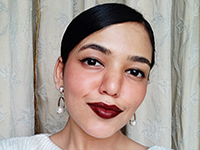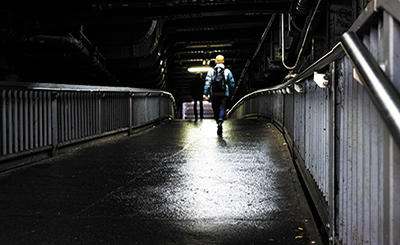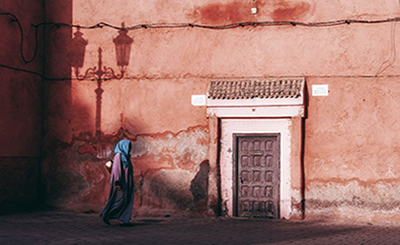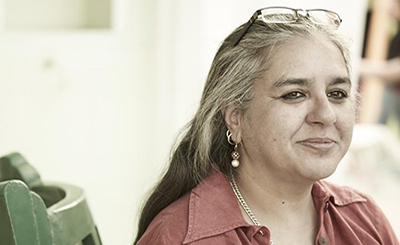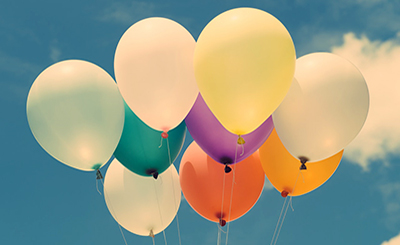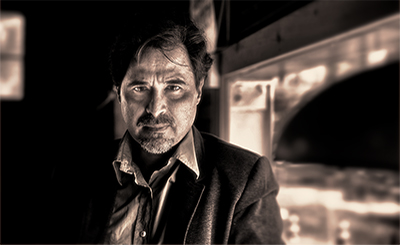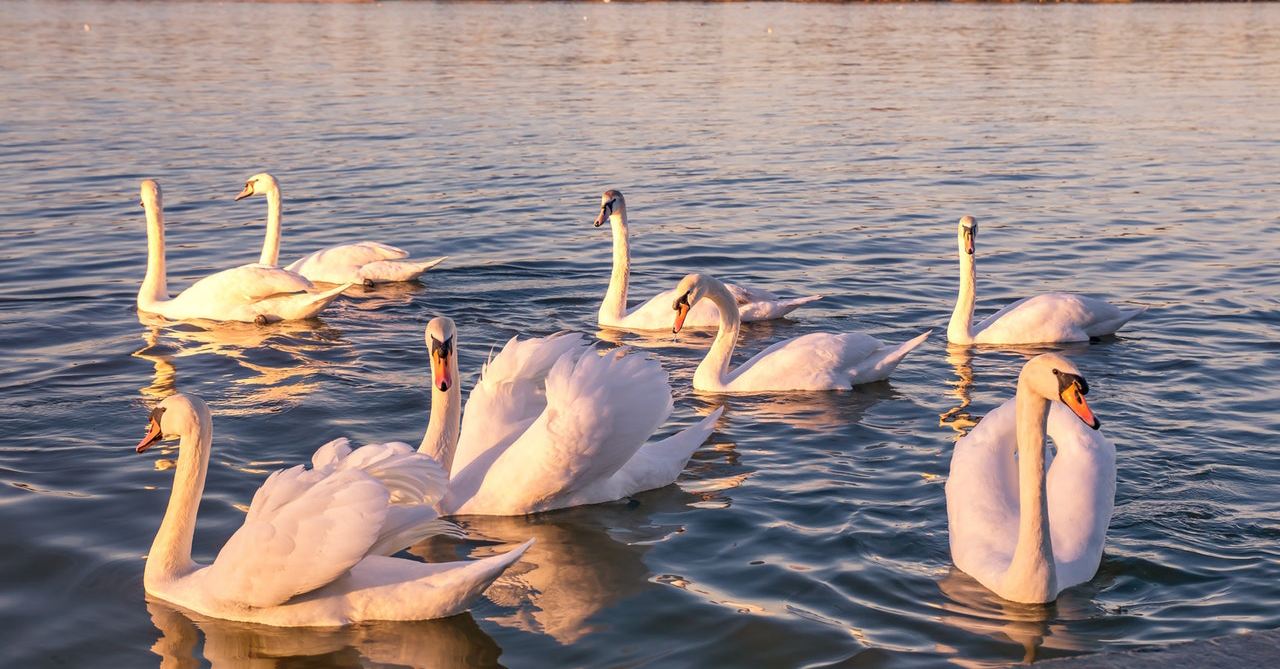
‘I approach poetry with a sense of devotion’
I approach poetry with a sense of devotion. There are rituals I like to adhere to. When I am working on a poem, my day opens with it and closes with it. I tend to think about it all the time, though I have other commitments too, not least accounting. I used to wonder if artists are all obsessive about their arts, but I have found that I am not that way when I am painting. Painting, to me, is not as compulsive a desire as poetry. When I paint, I can set the paper aside, but it is not so when I am writing, at least not with as much ease and forbearance. I am not a watercolourist but I am reminded of Derek Walcott, who said, “I’m content to be a moderately good watercolourist. But I’m not content to be a moderately good poet. That’s a very different thing.” I write into the night since the morning is often lost to other engagements, but also because it tends to be quieter and stiller than other phases of the day. I am easily distracted by sound and movement; it is why I face a wall when I write; it is why I have a fan in my room that is loud enough to drown out other sounds and consistent enough to not intrude into my head. And despite all these arrangements, I find myself writing, reading, and revising, at odd points along the day.
I believe all writers of poetry are also keen readers of poetry. When I started writing poetry, the poets I read were all deceased and predominantly European. I read William Shakespeare, Samuel Taylor Coleridge, Charles Baudelaire, C.P. Cavafy, and later, Federico García Lorca, Fernando Pessoa, Osip Mandelstam, Rainer Maria Rilke, Anna Akhmatova, Paul Celan, Wisława Szymborska, Czesław Miłosz, and eventually, Homer and Dante, among others. I read classical Chinese poetry through Arthur Waley’s translations, Japanese poetry through Kenneth Rexroth’s translations, Prakrit poems translated by Arvind Krishna Mehrotra, Sanskrit poets like Kalidasa, Vijjaka, Bhartrihari, and Shilabhattarika, in various anthologies, translated by different poets, and American poets like Emily Dickinson, Ezra Pound, T.S. Eliot, John Ashbery, and others. I read a few Hindi poets, too, but not as often as I would have liked to. I have not read too far beyond Mahadevi Varma, Kunwar Narain, Vinod Kumar Shukla, and Sarveshwar Dayal Saxena. I started to delve into Indian poetry only two years ago, though I had read A.K. Ramanujan and Arun Kolatkar before. Unfortunately, I am limited to English and Hindi. I can read German, but I am not capable of reading poetry in the language.
I would hesitate to consider any particular writer a ‘poetic influence’. One is nourished by so many. The tradition is old and glorious, and we find our place in it. Poetry is also rarely influenced by poetry alone. Music is very important to me, and so is art, so is nature. I find it dangerous to be too purposeful about what one reads. We should allow ourselves the freedom to read with no particular intention in mind, to be guided by curiosity and pleasure, to read prose and poetry, and between and beyond, to read the sea with as much devotion as a book. There are intellectual influences, but I would not consider them more or less important than sensory influences, at least not with regard to poetry.
Over time, my poems have become more structured. If an idea comes to me, I look for a form that could accommodate it. I have also found that revision is often more fruitful than writing. One must strive for a few good poems. The length of my poems tends to vary, and so does the voice. I am not in favour of the notion that poets must have a distinctive, unchanging voice that is consistent throughout their body of work. It is an unnecessary constraint.
In An Essay on Virginia (1925), William Carlos Williams said, ‘Unity is the shallowest, the cheapest deception of all compositions. In nothing is the banality of the intelligence more clearly manifested. There is no less significant matter for the attention. Every piece of writing, it matters not what it is, has unity. Inexpert or bad writing most terribly so.’ He said this with regard to the essay as a form, though I reckon it holds true for poetry, too.
I have not been a poet long enough to say, with any certainty, what poetry is. It is just as hard to tell why one writes poetry, though I believe it is a question worth seeking an answer to if there is one at all. I suppose poetry is simply thrust upon some of us. We write because we happen to.
A Morning in Eden
After Anne Sexton
Come, my beloved, consider this morning.
The curtains move in undulating billows
Like the low, long roll of the hills in the east.
Have you seen those hills, stretched across Dzüko,
Where the grass is olive and silken, the streams,
Limpid, and the clouds, some whiter than others,
A bevy of sleeping swans drifting over a lake?
Come, come with me. Let us rest our heads
On their soft feathers. I have lived this morning before,
Though alone. Nothing can be made of such a morning.
The wind brings the scent of oranges, freshly peeled,
And the image of your fingers covered in their viscid piths.
I want to sit across from you and taste your fingers.
But this morning does not allow for any movement.
I watch the hem of your peignoir tremble under the fan
And the gaze of the sun on your feet. Come, my beloved,
Lie with me. Let us disappear into this light.
In Praise of Age
Bereft of the gaudy glint of youth, lustre of fresh pearls,
The silver necklace sits comfortably around her neck.
It has matured. The metal is no longer piqued by the sun.
The pearls, having yellowed, are closer to her skin than nacre
And the emerald pendant could be oiled but it need not be.
Here, in this ceding, in this repose, is the gift of age.
The necklace, familiar with her nape, knows
How it curves and opens into her bosom;
Where the polished stone must catch the light,
Where the clusters of pearls must rest,
Where the lobster’s claw must meet the eye.
There was a time when it sat over her collarbone,
Stiff and fraught, nearly bruising her neck
When she turned her head.
But that time is long gone.
This morning, it looks still more innate
Than a bruise on a young woman’s neck.
Eleven Moments in a Garden
I.
In the afternoon,
When the sun is low,
A woman bends
To pluck weeds
With her hands.
II.
In the locked-down garden,
The only flowers are on the scarf
Around her head. It is a red cloth
With white flowers, though it looks
Like a trembling dot of pink
For a head.
III.
When a gust of wind passes through the garden,
The grass bends towards the east. The weeds do not.
That is how one knows the weeds from the grass,
Their indifference.
IV.
A garden with a gardener
Is same as a garden with a gardener and I,
Who is looking at the garden and the gardener.
We are one image: a garden, a gardener, and I.
V.
I did not know of any sounds,
But I heard them all
In the chambers of my heart:
A pastoral symphony.
VI.
The dead weeds have roots,
Their roots have hands,
Their hands are raised.
VII.
The dead weeds are heaped around
The center of the garden
Like a topiary.
VIII.
A patch of grass, now weeded, is uniformly grass,
Though the woman who weeded the grass
Is no longer uniformly woman.
The earth is under her nails.
IX.
The woman rose, stretched her spine,
Then bent again as if by instinct.
X.
When I first saw her, it was afternoon.
The sun was over her head.
I see it in the west now.
She is still where she was,
Plucking weeds.
XI.
Mother waits for no one.
Mother changes forms,
Burning into a night.
The woman remains,
Deserted in the garden.
A still life in a moving landscape.
The essay and the poems are part of our Poetry Special Issue (January 2022), curated by Shireen Quadri. © The Punch Magazine. No part of this essay or the poems exclusively featured here should be reproduced anywhere without the prior permission of The Punch Magazine.
More from The Byword
Comments
*Comments will be moderated
I enjoyed your thoughts on the craft and your spontaneous overflow of feeling in poetry. We write because we must, surely. Poetry births the new and is the vanguard of the human soul, cutting the underbrush so lesser brave spirits may pass the way to see the light. We write because our soul is in command, a person of the future visiting us in repose. The light strikes us dramatically as our faces are bowed in shadow. Thank you for your thoughtful language and expression.
Dustin David Pickeri
Jan 31, 2022 at 00:40



